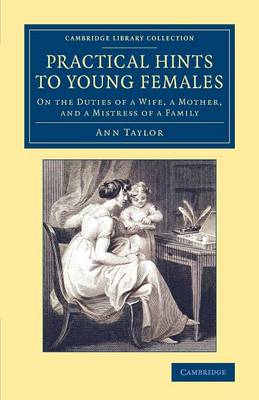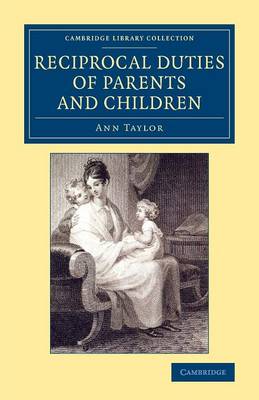Cambridge Library Collection - Education
2 total works
Displaying her intellectual and literary abilities from a young age, 'Mrs Taylor of Ongar' (1757-1830) enjoyed writing all her life. She had eleven children, of whom six (four of them writers) survived to adulthood. Her published works began with advice books for her own daughters, produced when increasing deafness made ordinary conversation difficult for her. Given the difficulty of providing advice equally appropriate to girls at all levels of society, this 1815 work is addressed to 'females in the middle ranks'. It is assumed that a girl's aspiration, as well as her destiny, is to be a wife and mother: conduct towards the husband, and the rearing of children, are of prime importance. But there is also a chapter for the husband, pointing out his reciprocal duties to his wife as an equal partner in their relationship. The book offers fascinating insights into the middle-class ideal of domestic happiness.
Displaying her intellectual and literary abilities from a young age, 'Mrs Taylor of Ongar' (1757–1830) enjoyed writing all her life. She had eleven children, of whom six (four of them writers) survived to adulthood. Her published works began with advice books for her own daughters, produced when increasing deafness made ordinary conversation difficult for her. This book, published in 1818, follows her earlier works for young women with a guide to conduct and 'reciprocal duties' within the family. Stern warnings and cautionary tales are given to show the importance of duty to and respect for parents by children, but the parental duties of care in rearing and especially in education are emphasised. Early discipline, lovingly applied, is seen as the key to successful parenting, and its absence is deemed disastrous. Like Ann Taylor's Practical Hints to Young Females (also reissued in this series), the book offers fascinating insights into the middle-class ideal of domestic happiness.

